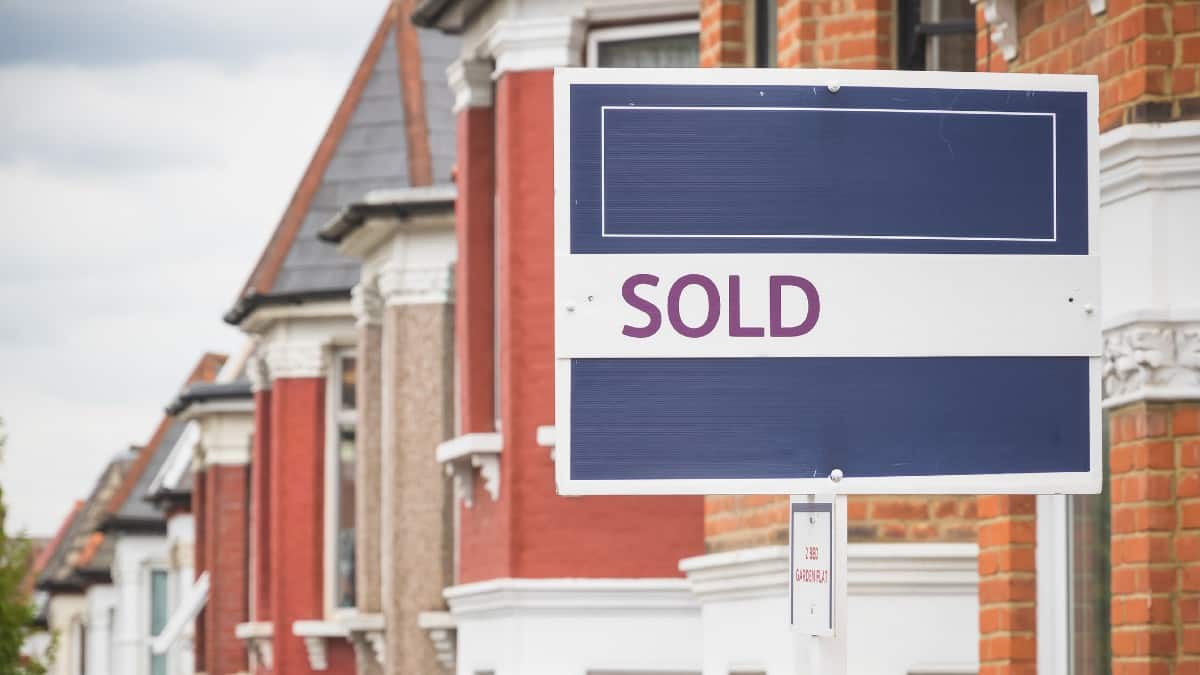At times, it feels as though the UK housing market defies the laws of physics. Despite the country being in the midst of a global pandemic, UK house prices have increased by a staggering 13% since coronavirus first hit the headlines. So what is the house price forecast for September 2021? Let’s take a look.
[top_pitch]
House price forecast: how much have prices increased?
According to the latest Nationwide House Price Index, the average price of a house in August 2021 stood at £248,857 – 2.1% higher than in July.
This month-on-month increase came despite the tapering of the stamp duty holiday in England. Nationwide reports that this increase was the second-largest monthly gain in 15 years. The highest monthly rise of 2.3% was recorded in April.
Meanwhile, the Halifax House Price Index mimicks Natwionwide’s narrative that house prices are continuing to increase. The latest Halifax index reports that the average price of a house is now £261,221, as of July 2021.
It also reports that average house prices rose by 0.4% in July 2021 compared with June. Over the past quarter, Halifax reported a 2.4% rise, while over the past year, its data showed a 7.6% annual rise.
Halifax will update its House Price Index on 7 September.
What does official data show?
Before exploring the house price forecast, it’s worth looking at official housing data provided by the government.
Although not published as regularly as the Nationwide or Halifax Indexes, the ONS UK House Price Index is considered a very reliable indicator of prices. That’s because it’s is based on completed cash and mortgage sales sourced from HM Land Registry.
Its latest data, from June 2021, reports average house prices increased by 13.2% over the year to June 2021. This is the highest annual growth rate in the UK since November 2004.
The data also shows that average house prices reached a record high of £266,000 in June 2021 – £31,000 higher than in June 2020.
From a regional perspective, the ONS reported that Wales witnessed the biggest growth in house price inflation. Average house prices in the country rose a massive 16.7% in a year, to £195,000. In England, prices rose 13%. This figure was similar in Scotland, where prices rose 12%. Meanwhile, prices in Northern Ireland increased 9%.
The ONS will publish new data on 15 September.
[middle_pitch]
Why have house prices increased?
According to Nationwide’s chief economist, Robert Gardner, the recent surge in house prices wasn’t predictable. He explains: “The bounce back in August is surprising because it seemed more likely that the tapering of stamp duty relief in England at the end of June would take some of the heat out of the market.”
He does, however, suggest that the existing stamp duty holiday may be influencing prices at a specific price point. He states: “The strength may reflect strong demand from those buying a property priced between £125,000 and £250,000 who are looking to take advantage of the stamp duty relief in place until the end of September, though the maximum savings are substantially lower.”
The withdrawal of the holiday may, therefore, have an impact on the next house price forecast.
Gardner also points to a shortage of properties as another factor behind the recent rises: “Lack of supply is also likely to be a key factor behind August’s price increase, with estate agents reporting low numbers of properties on their books.”
What can impact house prices?
Aside from a shortage of homes, there are a number of factors that can influence house prices and the wider house price forecast. These include:
- A shift in home-buyer needs
- The availability of cheap mortgages
- Quantitative easing
- Government intervention
- Planning laws
For more factors, see our article on what causes high house prices.
What’s the house price forecast for September 2021?
Nationwide’s Robert Gardner doesn’t predict a fall in prices any time soon.
He explains: “Underlying demand is likely to remain solid in the near term. Consumer confidence has rebounded in recent months while borrowing costs remain low. This, combined with the lack of supply on the market, suggests continued support for house prices.”
Gardner does however concede that the house price forecast for the end of the year is a little more cloudy. He states: “Activity will almost inevitably soften for a period after the stamp duty holiday expires at the end of September, given the incentive for people to bring forward their purchases to avoid the additional tax.”
He also suggests that rising unemployment may have an impact on prices, explaining that: “underlying demand is likely to soften around the turn of the year if unemployment rises, as most analysts expect, when Government support schemes wind down.”
“But even this is far from assured. The labour market has remained remarkably resilient to date and, even if it does weaken, there is scope for shifts in housing preferences as a result of the pandemic to continue to support activity for some time yet.”







